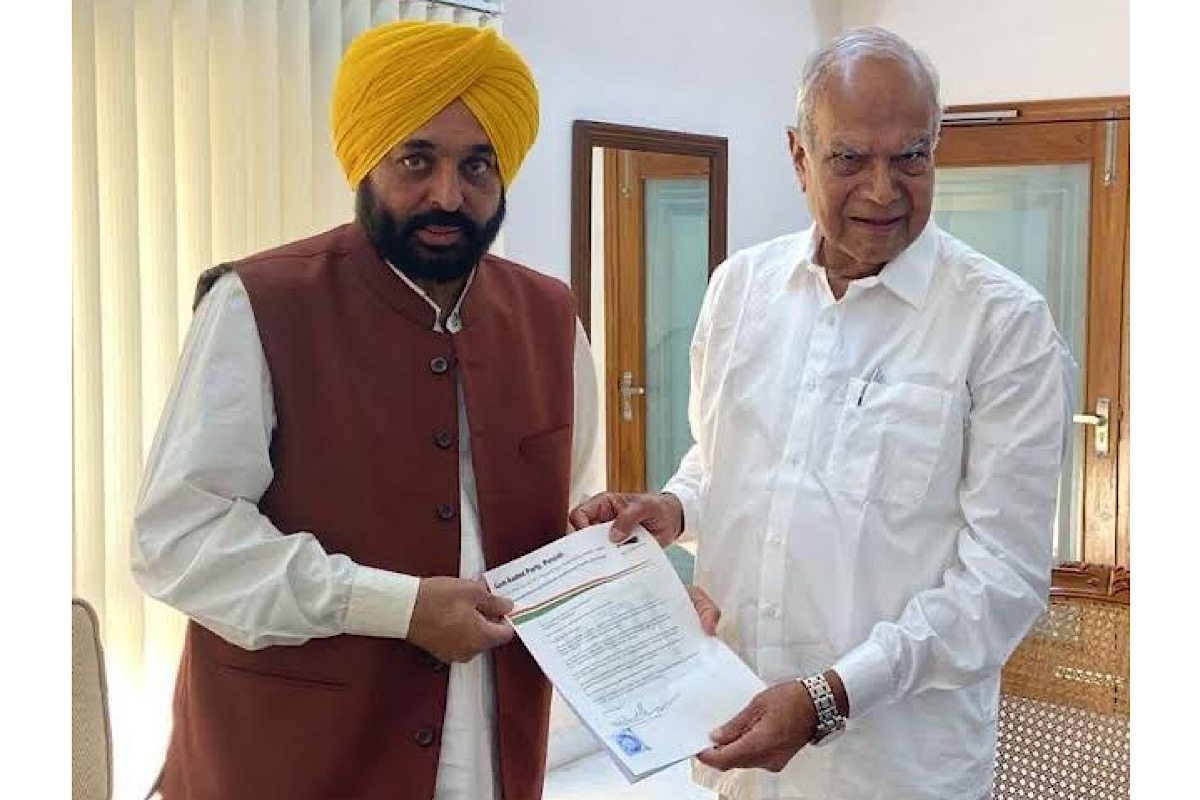In a tussle between Punjab Governor Banwarilal Purohit and the State Chief Minister Bhagwant Mann on the convening of the State assembly’s Budget Session as recommended by the Council of Ministers, the Governor Purohit has yielded and called the session on coming Friday (March 3).
Although the bench of Chief Justice DY Chandrachud and Justice PS Narasimha was informed in the course of an urgent hearing on Tuesday evening that Governor has summoned the sitting of the State assembly on March 3 as recommended by the Council of Minister headed by Chief Minister Bhagwant Mann, the court in a series of observation took a dim view of the way both the – Governor and the Chief Minister – both holding constitutional office had conducted themselves.
Advertisement
Taking exception to both the Governor and the Chief Minister disregarding the obligations that the constitutions impose on both of them, the Chief Justice Chandrachud in his detailed order passed today said both were expected to act with “sobriety” and “maturity” instead of stooping to “bottom.”
Reminding both the Governor and the Chief Minister that there has to be a level in in their discourse, the court said that when the Council of Minister by a decision has recommended to the Governor to convene the budget session of the State assembly, then he has no other option but summon the session of the State assembly.
The court said that there was no scope for the Governor seeking “legal opinion” on the recommendation of the Council of Ministers to convene the session of assembly.
The court said that if one constitutional authority (read Chief Minister) is not discharging the duties mandated under the constitution, it was not open to the other constitutional functionary (Governor) not to act as mandated under the constitution.
Taking strong exception] n to the tone and tenor of the communication by the Chief Minister Mann to Governor Purohit, the court said that the constitution mandates the Chief Minister to furnish all the information sought by the Governor in running the affairs of the State.
In the morning, senior advocate Abhishek Manu Singhvi in a mentioning sought an urgent hearing on the i the refusal of the Governor to summon the budget session.
The issue, however, fizzled out as Solicitor General Tushar Mehta told the court that the Governor had agreed to call the session on March 3.
Singhvi contended that the Governor said since the Chief Minister made some statements in unconnected matters, he would seek legal advice on the convening of the session. The top court then scheduled the matter for hearing at 3.50 p.m. on Tuesday.
Last week, Governor Banwarilal Purohit said that he will decide on allowing the proposed Budget session of the state slated on March 3 only after seeking legal advice on the “derogatory and patently unconstitutional tweets and letter” written by Chief Minister Bhagwant Mann.
The Council of Ministers had recommended that the budget session be held from March from March 3 to 24, 2023, and a letter seeking the Governor’s approval was sent to him.
In the letter, Purohit reproduced the tweets and letter sent by the Chief Minister on February 13 and 14 in response to his letter.
On February 13, the Governor had slammed the Aam Aadmi Party (AAP) government by questioning decisions taken by it in the past couple of weeks, including lack of transparency in selecting teachers to be sent to Singapore for training.
The Governor had also questioned the appointment of a “tainted” person as chairperson of Punjab Infotech, saying he was accused in property grabbing and kidnapping cases.
The Governor had sought the criteria and details of the entire selection process of Principals for sending them to Singapore as there were allegations of “no transparency.”











